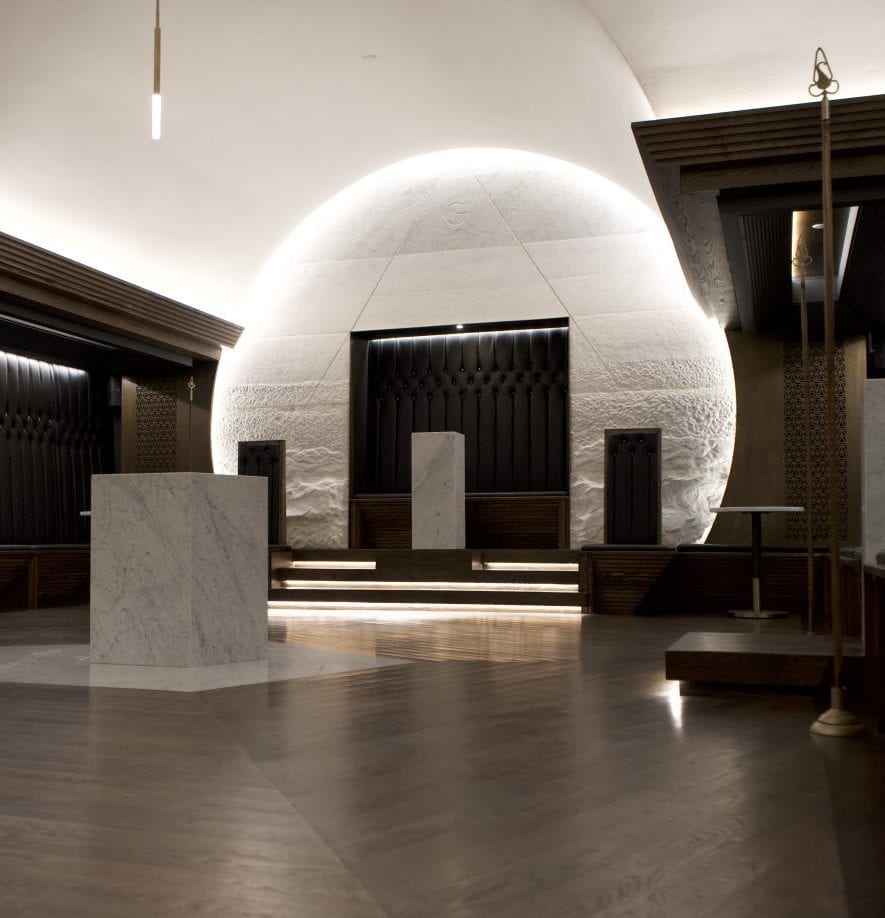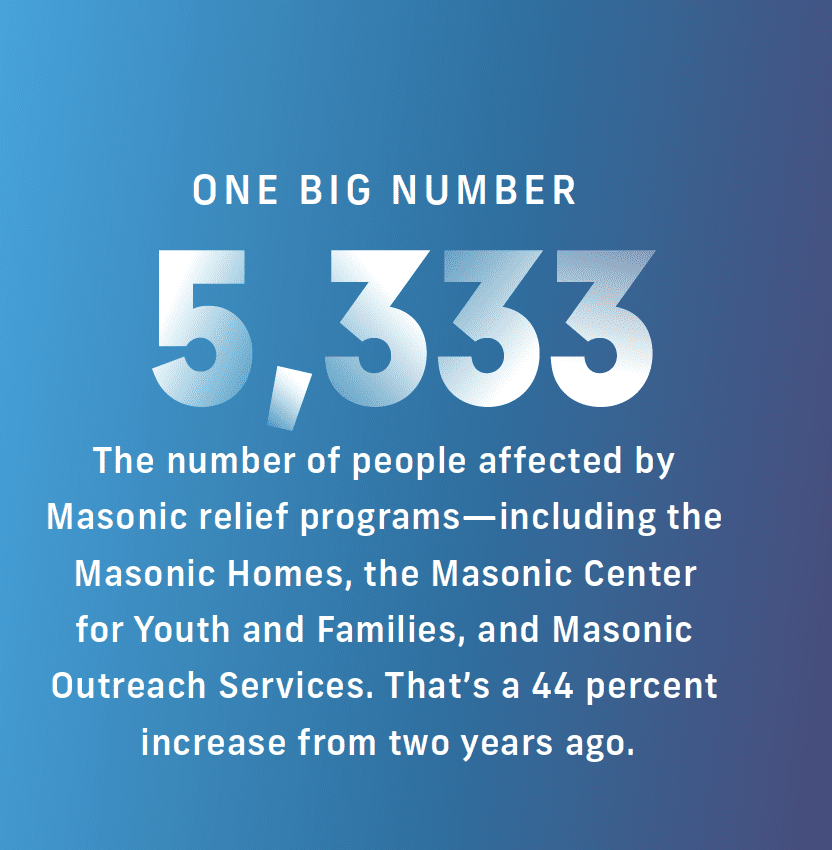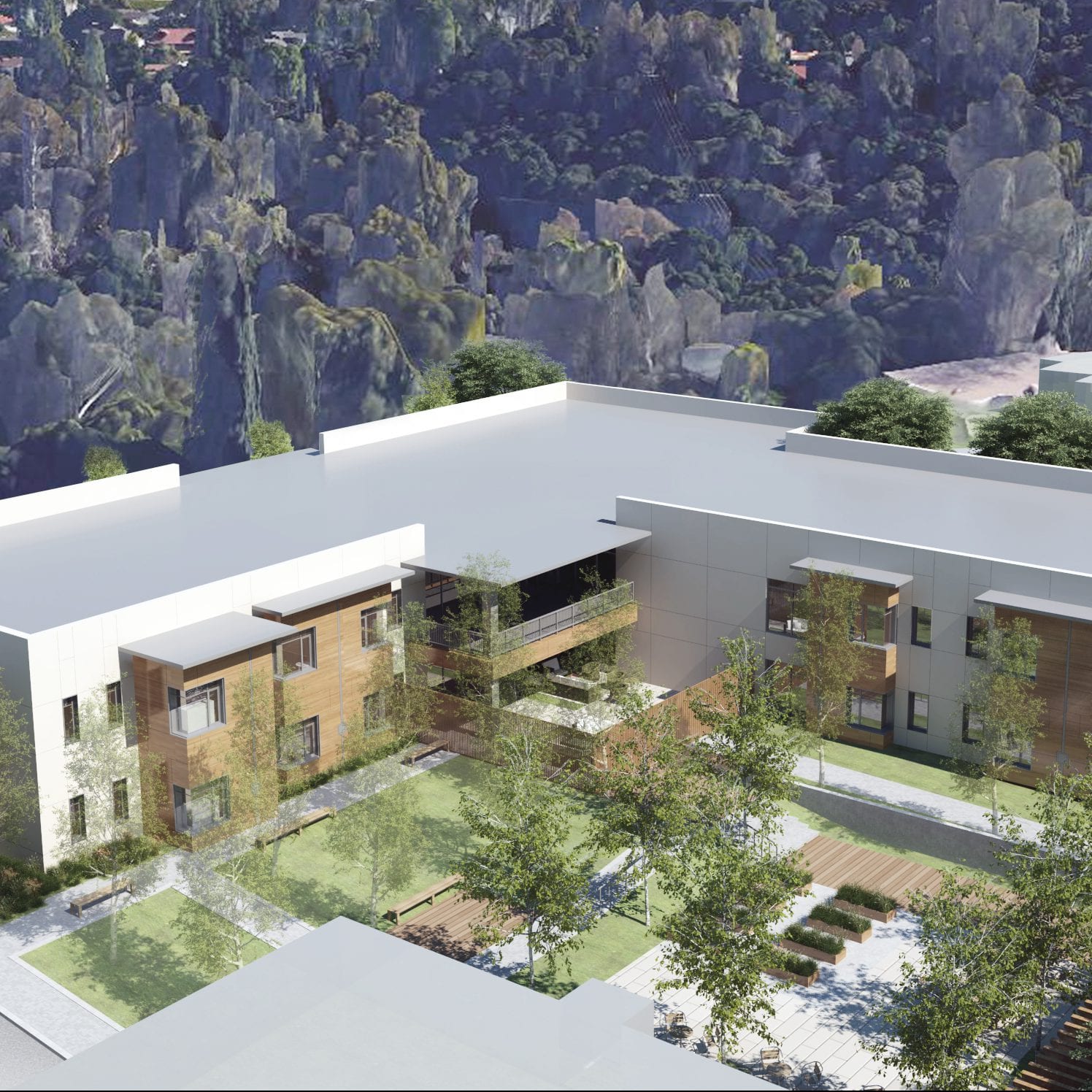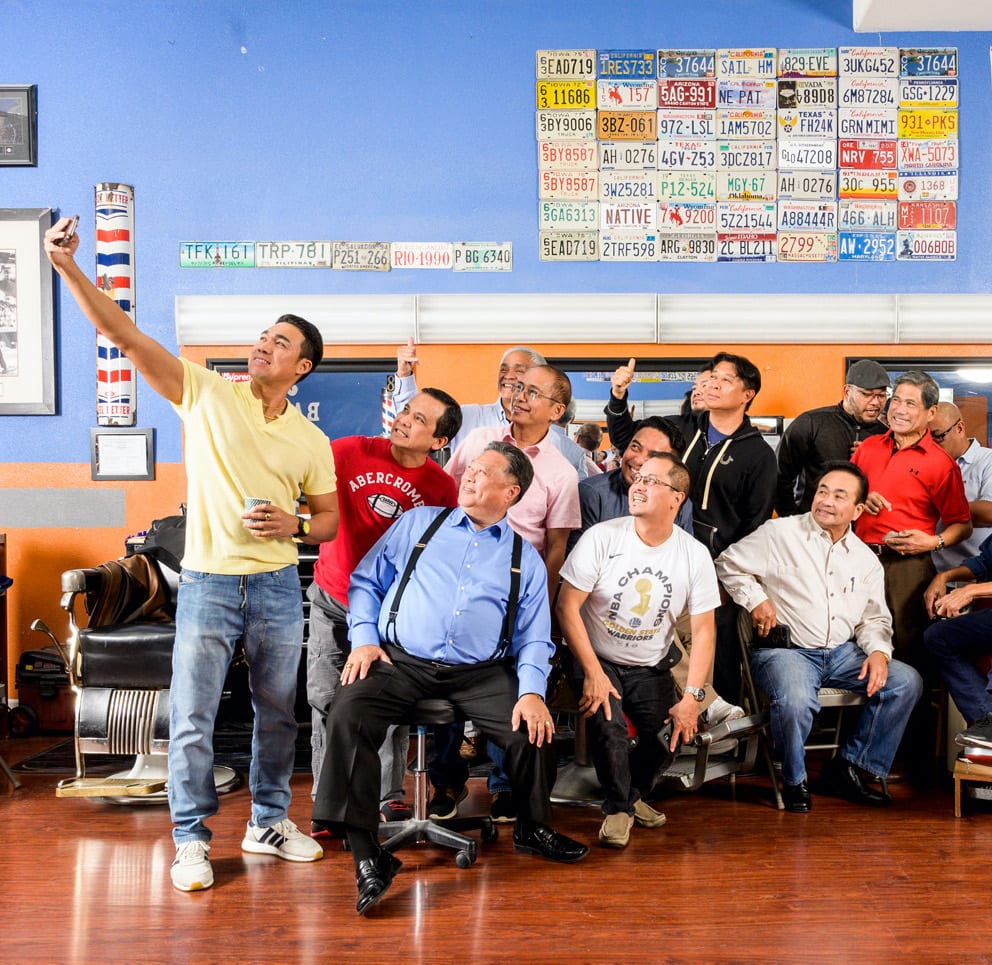
The Forever Home
Finally, the California Masonic Memorial Temple is host to its first dedicated lodge room.

By Laura Benys
When Samuel and Joy Bacon were nearing retirement, they sat down with a pad of paper to work out how much money they had saved and how long they expected to live, based on family histories. They added 10 years to their life expectancy. They did the math and were reassured: They had plenty to get by.
Three decades later, Joy was 92 years old and Samuel was 94. And as Joy puts it, “The money was gone and we were not.”
Nationally, as many as a quarter of all people over the age of 62 struggle with economic insecurity, as housing and health care costs go up and the value of a dollar drops—a figure that’s even higher in California. With a growing senior population outliving its savings, families and community support services are hard-pressed to make up the difference. The crisis is even more acute in the Central Valley. According to the Census Bureau, the region has one of the highest levels of senior poverty in the state: In Fresno County, 12 percent of older adults are living below the federal poverty level, and 60 percent depend on Social Security for the majority of their income. Seniors relying primarily on Social Security often have difficulty finding safe, secure, and reasonable housing, paying for out-of-pocket medical expenses, and affording transportation and food. Beyond these financial markers, the Central Valley is vast—about 450 miles long and 50 miles wide—and mostly rural, so seniors are more likely to live far from social assistance.
Samuel and Joy Bacon spent their lives together in Visalia. It’s where they raised their four daughters and where Samuel joined Visalia-Mineral King Lodge No. 128, where he went on to serve as lodge master. When Samuel’s health began to fail, he asked his wife to do something for him. “He said, ‘I’m leaving you in a mess. You don’t have a lot to get by on,’” Joy recalls. “He said, ‘If I go before you do, call this number on the back of my dues card. They’ll take care of you.’” In August 2018, he passed away.
At the time, Joy’s health was declining, and she required assisted living. The high costs of such facilities can be prohibitive even to those whose savings haven’t been drained. Joy’s children stepped in to pay. “They were glad to help me,” she says. “They would carry me around on a pillow if I let them. But they’re trying to save for their retirement, too. It just killed me that they were spending their savings to take care of me. I don’t know how long they could’ve afforded to keep paying.”
So in September, Joy honored her late husband’s request: She called the number on the back of his Masonic dues card. It connected her with Masonic Outreach Services.
MOS was developed to support fraternal family members in need, including helping seniors age safely in their homes and communities. Among its many services, the program provides individual care management, charitable dollars in qualifying circumstances, and referrals to community resources.
When Joy called MOS, she was connected with David Goldstein, a care manager who covers the Central Valley and parts of Southern California.
Goldstein helped Joy apply for financial assistance and created a budget that would ensure she maintained a strong quality of life. Without MOS support, she likely would have had to move into a skilled-nursing facility, a poor fit for her physical and social needs.
Goldstein describes MOS as a “magic wand” that he gets to wield on behalf of the fraternity. “It comes down to quality of life,” he says. “We’re able to leverage community-based resources in addition to charitable dollars and create a budget that maintains dignity.”
Kai Hoye, another MOS care manager with clients in the Central Valley, echoes that sentiment. “MOS is a phenomenal charitable contribution to the world,” Hoye says. “I see on a weekly basis how lives are changed. It’s shown me what it means to really show up for a senior who’s aging.”
Masonic Outreach Services has had a presence in the Central Valley for decades. But in the vast rural stretches of this part of the state, the challenge is often identifying those in need—people like Joy—in the first place. Joy knew to call the number on her husband’s dues card. Too many other Masons, spouses, and widows don’t. So in November 2017, MOS introduced another effort to expand its reach in the valley: the Lodge Outreach Program.
Since 2015, the Lodge Outreach Program has been rolled out gradually to all Masonic divisions in California; Division V, which covers the Central Valley and Central Coast, was the last to receive it. Through the program, Masonic volunteers are trained in outreach practices and work alongside MOS staff to keep tabs on fraternal family members who need support. This training is in full swing now in the Central Valley. “Masons take an obligation to serve as a primary aid for distressed members,” says Camille Salinas, who leads the training. “This program basically fulfills that obligation. It’s a grassroots effort built by Masons for Masons.”
Through quarterly meetings, lodges in the Lodge Outreach Program form a support network that stretches throughout their division. The training prepares them to identify and assist fraternal families in need, stay informed about Masonic Homes services, and lean on each other to coordinate things like providing transportation, helping with household chores, and making regular phone calls to check in with elderly members and widows. With lodges to help shoulder these day-to-day tasks, MOS is able to leverage its funds and staff throughout the entire state. Together, lodge volunteers and MOS make it possible to identify people like Joy and get them the services they need.
Joy remains astonished by Masonic Outreach Services’ impact on her life. “I knew that a widows-and-orphans fund existed. I knew we had been donating to it all those years. I just had no idea that it was available for me,” she says, echoing an all-too-frequent note. “MOS has absolutely saved my dignity, if not my life.”
Goldstein visits Joy frequently, and after they’ve reviewed her file, they sit and talk. Joy tells Goldstein about growing up as an “Okie kid” and living in the Dust Bowl. She tells him stories about her and Samuel’s life together.
Joy still talks to Samuel, too. They’d been married 73 years when he passed away. “The other day, I said to Samuel, ‘You were worried about not taking care of me. Now you’re taking care of me again,’” she says. “‘You’re making sure I’m alright—through the lodge.’”


Finally, the California Masonic Memorial Temple is host to its first dedicated lodge room.

The skilled nursing and memory care building in Covina will allow those with specialized needs to stay close to their loved ones.

For the members of the youngest lodge in the state, American Canyon Lodge No. 875, Masonry is a multigenerational affair